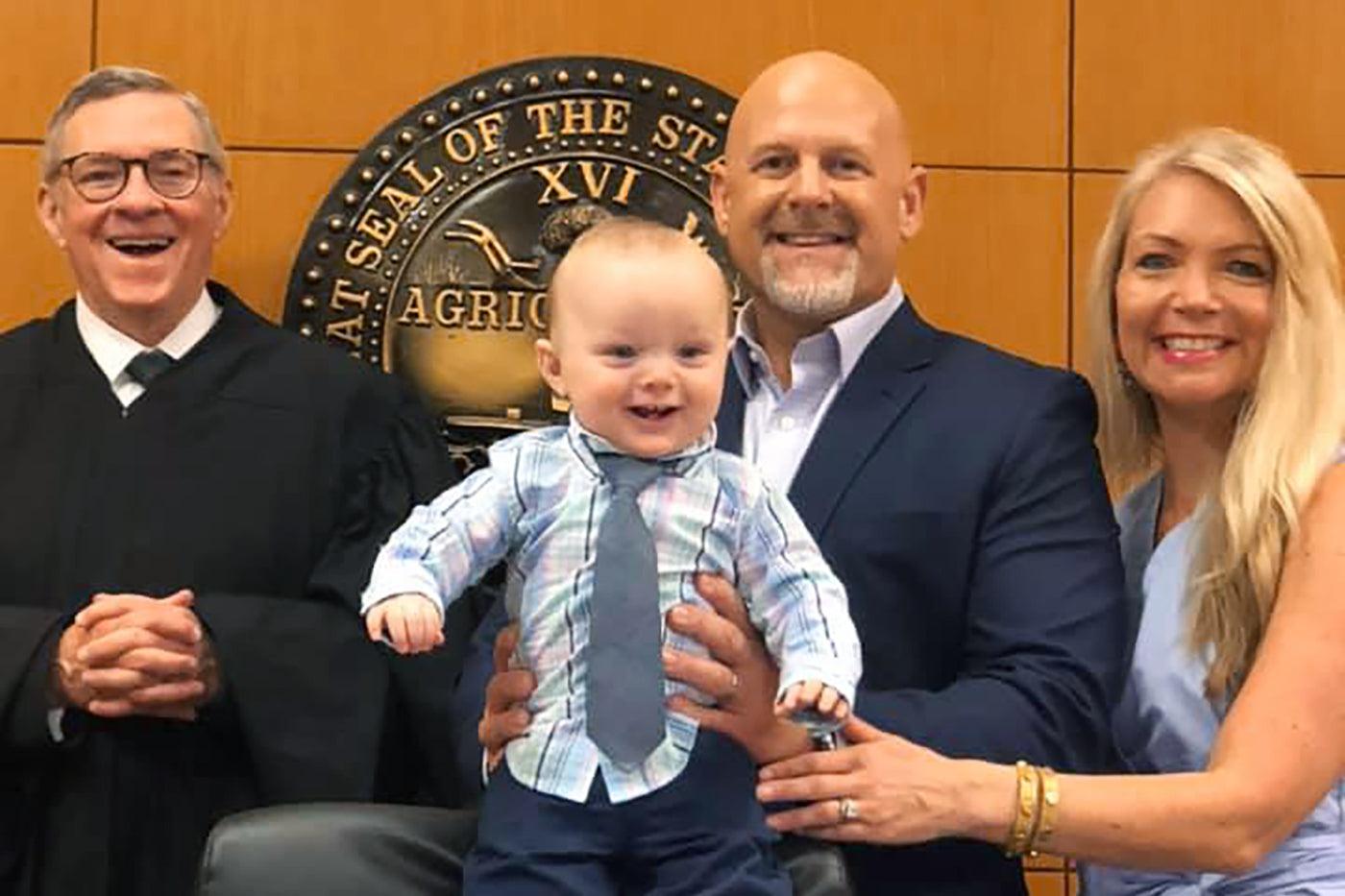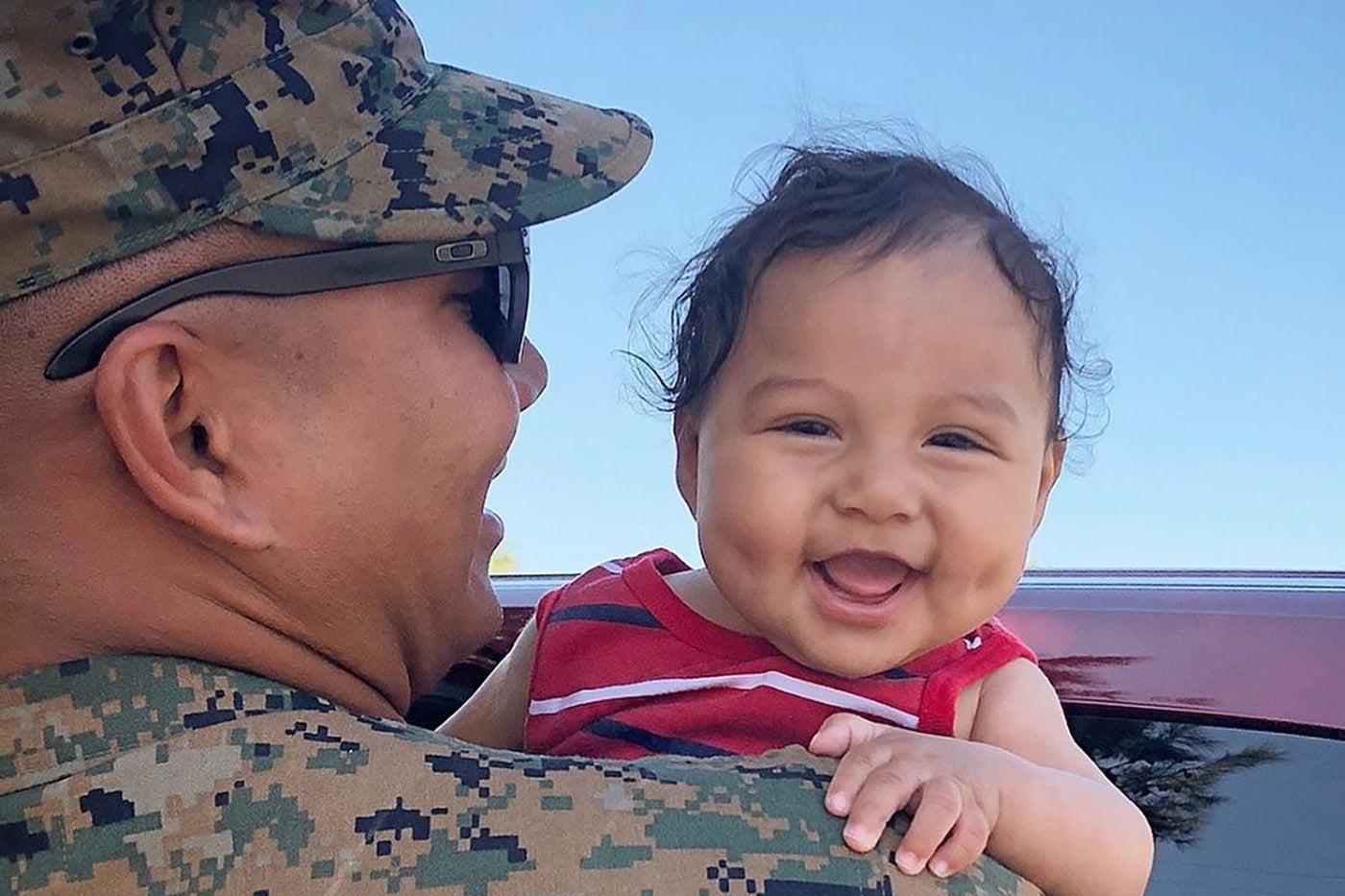SNOO
After a Long Adoption Journey, SNOO Provided 'Peace and Comfort'
Russ McBryde’s path to fatherhood was full of twists and turns…but he is now the proud dad to "the happiest baby" his friends have ever seen.

Written by
Happiest Baby Staff

The path to parenthood is not always short, smooth, or straightforward—which Melissa and Russ McBryde experienced in the years leading up to their son Will’s birth. After a long, grueling fight with infertility, the McBrydes landed on the road to adoption…but even that came with its twists and turns.
'We learned that adoption is not a cross-your-t’s, dot-your-i’s kind of journey,' Russ says. 'You expect to get this folder with everything you should know about everything, and it just doesn’t happen that way.'
One aspect of adoption they came to learn a lot about was about was opioid addiction, and what it means for babies who are born with neonatal abstinence syndrome (NAS), like their son.
During their home study, Russ remembers being asked what level of addiction they would be comfortable with and answering 'none.' He then quickly learned that they would need to consider adopting an NAS baby because the majority of opportunities from birth mothers tended to come with some level of addiction. While Russ and Melissa are now passionate about educating others about adoption and NAS children, at the time, this was uncharted territory and they were uncertain they were equipped to handle the challenges that came with it.
'We hadn’t been educated about it,' Russ says.
But, they opened themselves up to the possibility and held out hope that they could complete their family through adoption. Then, they waited...and waited.
'We had a couple of near misses,' Russ says. 'We were about to give up.'
Finally, around Easter 2019—three years after their home study—they got the call that they had been picked.
Still, there were more surprises ahead.
'We were at first told it was a girl. A week later they called and said the ultrasound was wrong, and actually it’s a boy,' Russ remembers. 'I was really excited it was a girl, and when we found out it was a boy we were just as excited!'
There were also some health scares along the way, that fortunately, were resolved. Then, about a month before Will’s due date, they got word that his birth mother had started having contractions. Initially, it looked like the hospital was able to stop them and delay labor.
'We said ‘phew!’ because we really weren’t prepared,' Russ says. 'I think we had painted the room and hung one light fixture—we weren’t anywhere near ready for him to come early.'
Around 3:30am, Russ and Melissa got word that their baby was definitely on the way, and they would need to drive from their home in Nashville to Oklahoma City, where their son would make his debut.
'We didn’t know if we were ready yet. Honestly, we thought about backing out because of all the things we didn’t know,' Russ says.
He got a pretty convincing sign that this was the right choice the next day. That morning, while they were still waiting for news, Russ took a breakfast meeting with a healthcare executive. During their conversation, Russ’s phone dinged. He looked down and saw a picture of his newborn son.
'I lost it,' Russ says. 'This guy asked if everything was okay, and I said, "I’m not." I told him, "I think my son was just born."'
After sharing his family’s story, Russ learned that, remarkably, the man he was meeting with had a special connection to the hospital where Will had just been born—in fact, the executive's grandfather had founded it! It felt like a divine answer to Russ’s lingering questions.
'I called Melissa, and I was like, "pack the car, we’re going to Oklahoma to get our son,"' Russ says. 'The second we held Will, we knew. It was one of those incredible experiences that people talk about that you can’t truly appreciate until you experience it.'
That began Will’s long journey of 32 days in the NICU at INTEGRIS Baptist Hospital while he was weaned off opioids. During that time, Russ and Melissa would visit Will four to six times a day to hold him and feed him and learn how to handle a baby.
'I remember walking into the NICU and saying, "I’ve never changed a diaper before, I’ve never fed a baby, but before we leave, I need a doctorate in what you do every day,' he says. 'And the nurses were incredible.'
In his endeavor to learn everything he could about babies, Russ stumbled upon SNOO. He recalls searching for the best bassinets for NAS babies when he first discovered the Smart Sleeper, which is already used in several hospitals to help soothe babies going through opioid withdrawal.
'I went to school on the research,' he says. And, soon, between what he had found out about SNOO’s ability to calm fussing and keep babies sleeping on the back, he was sold.
Russ set up SNOO in the hotel room where they were staying until they received clearance to leave Oklahoma. Will’s first time in SNOO, he slept five hours.
'We were high-fiving—we felt like we’d hit the lottery,' Russ says.
![[object Object]](https://cdn.sanity.io/images/301lhh0a/production/ba1e57ac8af4fd2950b8ea8f9eeb38706ca12673-370x480.jpg?w=750&auto=format&q=75&fit=max)
Will slept in SNOO from that point until he was 6 months old, eventually averaging anywhere from 9 to 12 hours of sleep a night.
'The peace of being able to do other things around the house knowing that while he slept he was safe and not at risk for SIDS was incredible,' Russ says. 'The comfort we gained from our son being soothed and positioned in SNOO in a safe way gave us the ability to rest too.'
Though Russ and Melissa worried about moving Will from SNOO to a crib, they were relieved that it was easier than expected after gradually transitioning Will’s arms out of the swaddle and using SNOO’s weaning feature.
'Our biggest concern was once we put him in the crib, and no longer having that third person in the family cuddling him,' Russ says. 'But it all really worked perfectly for us.'
Russ became so enthusiastic about SNOO, that he worked to connect Happiest Baby’s hospital program with INTEGRIS Baptist Medical Center, where his son was born…which has since used SNOO to soothe three NAS babies like Will!
'People today tell us that Will is literally the happiest baby they’ve ever seen,' Russ says. 'He is, and I think it has a direct correlation to this product meeting our needs and his.'
Disclaimer: The information on our site is NOT medical advice for any specific person or condition. It is only meant as general information. If you have any medical questions and concerns about your child or yourself, please contact your health provider. Breastmilk is the best source of nutrition for babies. It is important that, in preparation for and during breastfeeding, mothers eat a healthy, balanced diet. Combined breast- and bottle-feeding in the first weeks of life may reduce the supply of a mother's breastmilk and reversing the decision not to breastfeed is difficult. If you do decide to use infant formula, you should follow instructions carefully.
SHARE THIS ARTICLE
PARENT PICKS
Bestsellers



















